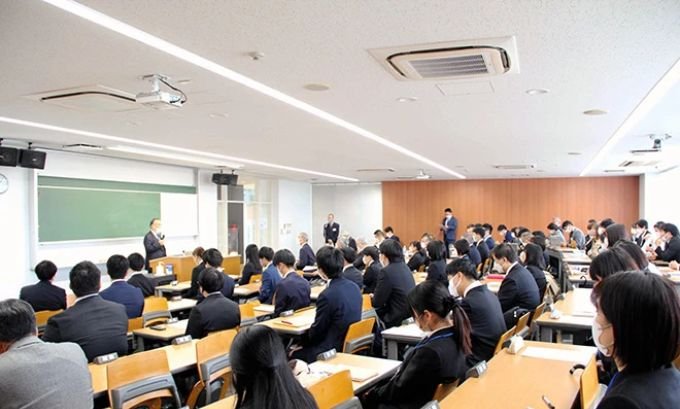Studying in Japan offers an incredible opportunity to immerse yourself in a rich culture while receiving world-class education. However, understanding the financial commitment is crucial for proper planning. This comprehensive guide breaks down all the expenses you’ll encounter as an international student in Japan, helping you budget effectively and make informed decisions about your educational journey or Student life in Japan.
Table of Contents
Tuition Fees: Your Biggest Investment
National Universities
Japanese national universities offer some of the most affordable tuition rates for international students. Annual tuition typically ranges from ¥535,800 to ¥642,960 ($3,600 to $4,300). Additionally, you’ll pay an admission fee of approximately ¥282,000 ($1,890) upon enrollment.
Private Universities
Private institutions command higher fees, with annual tuition ranging from ¥800,000 to ¥2,000,000 ($5,350 to $13,400). Medical and dental programs can cost significantly more, sometimes reaching ¥6,000,000 ($40,200) per year.
Japanese Language Schools
If you need language preparation before university, Japanese language schools charge between ¥600,000 to ¥900,000 ($4,020 to $6,030) annually.

Housing: Finding Your Home Away from Home
University Dormitories
Campus dormitories provide the most economical housing option, costing ¥20,000 to ¥50,000 ($134 to $335) monthly. These facilities often include utilities and internet, making them ideal for budget-conscious students. However, availability is limited, and application processes are competitive.
Shared Apartments
Sharing an apartment with other students costs ¥40,000 to ¥80,000 ($268 to $536) per month, depending on location and apartment size. This option offers more independence while keeping costs manageable.
Private Apartments
Renting your own apartment ranges from ¥60,000 to ¥150,000 ($402 to $1,005) monthly in most cities. Tokyo and Osaka command higher prices, while smaller cities offer more affordable options.
Additional Housing Costs
Beyond monthly rent, prepare for initial moving expenses including key money (reikin), security deposits (shikikin), and agency fees. These upfront costs typically total 4-6 months’ rent.
Daily Living Expenses
- Food Costs
Monthly food expenses range from ¥25,000 to ¥40,000 ($167 to $268) depending on your eating habits. Cooking at home significantly reduces costs, with basic groceries like rice, vegetables, and meat available at reasonable prices. University cafeterias offer meals for ¥300 to ¥500 ($2 to $3.35) each.
- Transportation
Monthly transportation passes cost ¥8,000 to ¥15,000 ($54 to $100) depending on your location and travel needs. Many students qualify for student discounts on public transportation. Bicycles, costing ¥10,000 to ¥30,000 ($67 to $201), provide an economical alternative for short distances.
- Utilities and Internet
Monthly utility bills (electricity, gas, water) typically range from ¥8,000 to ¥12,000 ($54 to $80). Internet service costs an additional ¥3,000 to ¥5,000 ($20 to $34) monthly.
- Mobile Phone Service
Mobile plans range from ¥2,000 to ¥8,000 ($13 to $54) monthly, depending on data allowances and carrier selection.
Academic and Personal Expenses
- Books and Supplies
Textbooks and academic materials cost approximately ¥30,000 to ¥50,000 ($201 to $335) per semester. Many students save money by purchasing used books or sharing materials with classmates.
- Health Insurance
All students must enroll in National Health Insurance, costing about ¥2,000 ($13) monthly. This coverage provides access to healthcare at significantly reduced costs.
- Personal and Entertainment
Budget ¥15,000 to ¥30,000 ($100 to $201) monthly for personal expenses, entertainment, and social activities. This includes clothing, personal care items, and occasional dining out or entertainment.

Regional Cost Variations
Tokyo
As Japan’s capital, Tokyo presents the highest living costs. Students should budget ¥120,000 to ¥200,000 ($804 to $1,340) monthly for all expenses excluding tuition.
Osaka and Kyoto
These major cities offer slightly lower costs than Tokyo, with monthly expenses ranging from ¥100,000 to ¥150,000 ($670 to $1,005).
Smaller Cities
Cities like Sendai, Hiroshima, or Fukuoka provide more affordable living, with monthly costs ranging from ¥80,000 to ¥120,000 ($536 to $804).
Money-Saving Strategies
Part-Time Work
International students can work up to 28 hours weekly with proper permits. Typical jobs include convenience store clerks, restaurant staff, or English tutors, paying ¥900 to ¥1,500 ($6 to $10) per hour.
Scholarships and Financial Aid
The Japanese government, universities, and private organizations offer numerous scholarships. The MEXT scholarship covers full tuition plus monthly stipends. Research and apply early for maximum opportunities.
Student Discounts
Take advantage of student discounts on transportation, entertainment venues, software, and various services. Always carry your student ID card.
Budget Shopping
Shop at discount stores like Don Quijote, 100-yen shops for basic items, and local supermarkets during evening discount hours. Buying seasonal produce and cooking at home dramatically reduces food costs.
Total Monthly Budget Breakdown
Based on these factors, here’s a realistic monthly budget for international students:
- Budget Option: ¥80,000-¥100,000 ($536-$670)
- Moderate Comfort: ¥100,000-¥150,000 ($670-$1,005)
- Comfortable Living: ¥150,000-¥200,000 ($1,005-$1,340)
These figures exclude tuition fees and assume you’re living outside Tokyo.
Planning Your Financial Future in Japan
Studying in Japan requires careful financial planning, but the investment pays dividends in educational quality, cultural experience, and career opportunities. Start saving early, research scholarship opportunities thoroughly, and consider the long-term benefits of your Japanese education.
Create a detailed monthly budget before departure, maintain emergency funds covering at least three months of expenses, and explore part-time work opportunities that align with your study schedule. With proper planning and smart spending habits, your student experience in Japan can be both enriching and financially manageable.
Remember that living costs vary significantly based on your lifestyle choices, location, and spending habits. Use this guide as a starting point, but conduct additional research specific to your chosen city and university for the most accurate planning.

